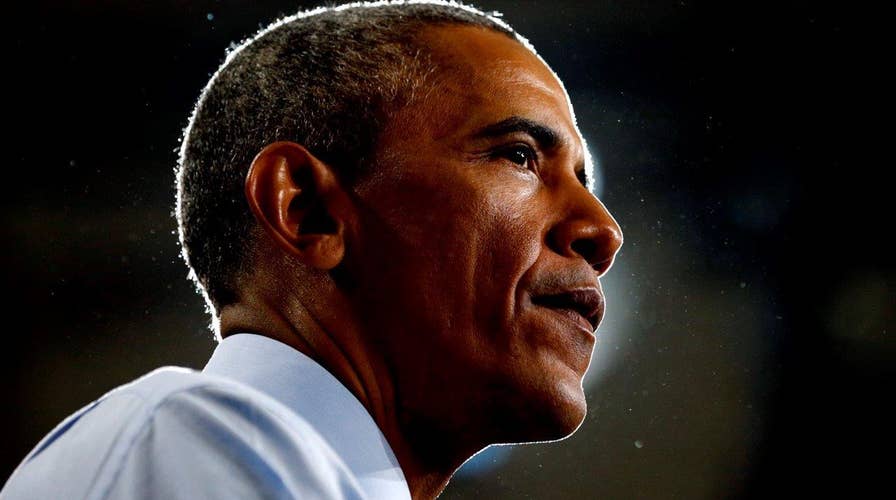Obama to blame for problems facing the Democratic Party?
Reaction from Mark Larson, conservative radio host, and Julian Epstein, former chief counsel for the House Judiciary Committee
President Obama suggested in an exit interview with his former top adviser that, had he been able to run, he could have won a third term in the White House.
Describing his confidence in an America that is “tolerant” and “full of energy,” Obama said: “I am confident in this vision because I'm confident that … if I had run again and articulated it, I think I could've mobilized a majority of the American people to rally behind it.”
President-elect Donald Trump fired back Monday in a tweet: "He should say that but I say NO WAY!" He cited the rise of the Islamic State terror group and trouble with Obama administration agenda items including ObamaCare.
The outgoing president made the comments as part of an extensive interview with David Axelrod, for his podcast produced by CNN and the University of Chicago. Axelrod was one of Obama’s top advisers during the 2008 campaign and his first term in the White House.
“I know that in conversations that I've had with people around the country, even some people who disagreed with me, they would say the vision, the direction that you point towards is the right one,” Obama told Axelrod, defending his assertion.
Obama was term-limited and could not run, clearing the way for his former primary rival – and secretary of state – Hillary Clinton to be the party’s standard-bearer in 2016. She nevertheless ran in large part on Obama’s agenda, vowing to preserve some of his signature policies as Donald Trump and his Republican allies campaigned against them.
As other top Democrats have done in the wake of President-elect Trump’s victory, Obama did acknowledge that Democrats and progressives face political challenges, especially in rural areas.
“If we can't find some way to break through what is a complicated history in the South and start winning races there and winning back Southern white voters without betraying our commitment to civil rights and diversity -- if we can do those things, then we can win elections,” he said.
Obama also warned about an “era where we are looking for simple solutions … that we end up starting to shut ourselves off from different points of view, shutting down debate, becoming more dogmatic, becoming more brittle. And I don't see that being a successful strategy for us winning over the country.”
He reminded listeners that his party won the popular vote on Election Day, but said: “We don't have very good population distribution from a democratic perspective.”
Vice President Biden offered a somewhat tougher critique of his party in a similar exit interview with the Los Angeles Times.
He said his party failed to connect with working-class, largely white voters, and warned that “a bit of elitism” has “crept in” to party thinking.
He recalled watching a Trump rally in Pennsylvania near where he grew up. “They’re all the people I grew up with,” he said. “They’re their kids. And they’re not racist. They’re not sexist. But we didn’t talk to them.”













































